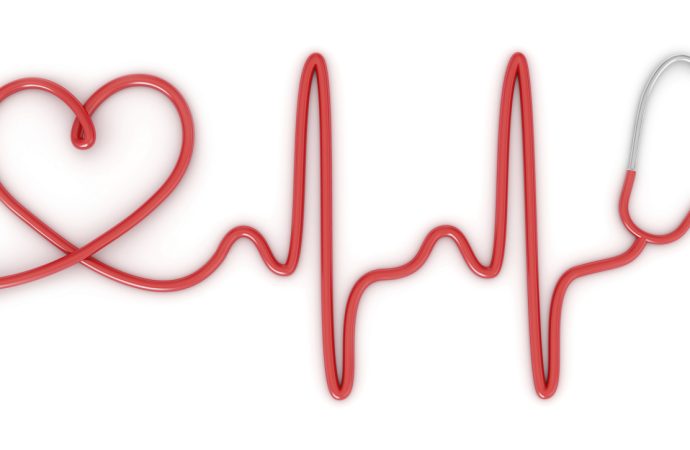Introduction to Heart and Body Health Maintaining good health is crucial for leading a fulfilling life. However, often we overlook the importance of monitoring our heart and overall body health. In this article, we will delve into the significance of checking your heart and body health regularly. Understanding Heart Health Importance of Heart Health The
Introduction to Heart and Body Health
Maintaining good health is crucial for leading a fulfilling life. However, often we overlook the importance of monitoring our heart and overall body health. In this article, we will delve into the significance of checking your heart and body health regularly.
Understanding Heart Health
Importance of Heart Health
The heart is a vital organ responsible for pumping blood throughout the body. Ensuring its proper function is essential for overall well-being. Good heart health reduces the risk of various cardiovascular diseases, including heart attacks and strokes.
Factors Affecting Heart Health
Several factors influence heart health, including genetics, lifestyle choices, and underlying medical conditions. Understanding these factors can help individuals make informed decisions about their health.

Image by: yendex.com
Assessing Body Health
Physical Health
Physical health encompasses various aspects, such as fitness levels, body weight, and overall vitality. Regular exercise, a balanced diet, and adequate sleep contribute to maintaining optimal physical health.
Mental Health
Mental well-being is equally important as physical health. Stress, anxiety, and depression can negatively impact overall health, including heart health. Prioritizing mental health through relaxation techniques and seeking support when needed is crucial.
Signs of Good Heart and Body Health
Feeling energetic, maintaining a healthy weight, and having good mental clarity are signs of good heart and body health. Additionally, regular physical activity and a balanced diet contribute to overall well-being.
Common Health Checkups and Tests
Regular health checkups and tests are essential for monitoring heart and body health effectively.
Blood Pressure Monitoring
Monitoring blood pressure helps in identifying hypertension, a significant risk factor for heart disease. Regular checks ensure timely intervention if blood pressure levels are elevated.
Cholesterol Levels
High cholesterol levels can lead to plaque buildup in the arteries, increasing the risk of heart disease. Periodic cholesterol checks aid in managing cholesterol levels through lifestyle modifications or medication.
BMI and Body Composition Analysis
Body Mass Index (BMI) and body composition analysis provide insights into overall health and fitness levels. Maintaining a healthy BMI and optimal body composition is crucial for preventing various health issues.

Photo by: unsplash.com
Lifestyle Factors Impacting Health
Diet and Nutrition
A balanced diet rich in fruits, vegetables, lean proteins, and whole grains supports heart and body health. Limiting processed foods, sugars, and unhealthy fats is essential for maintaining optimal health. Explore More About (Gas Stove Health Impacts)
Exercise and Physical Activity
Regular exercise strengthens the heart, improves circulation, and enhances overall fitness. Incorporating both aerobic and strength training exercises into your routine promotes heart and body health.
Stress Management
Chronic stress negatively affects heart health and overall well-being. Practicing relaxation techniques, such as meditation and deep breathing, can help manage stress levels effectively.
Importance of Regular Health Checkups
Regular health checkups enable early detection of potential health issues, allowing for timely intervention and treatment. Proactive healthcare management is key to preventing diseases and maintaining optimal health.
Tips for Maintaining Heart and Body Health
- Follow a balanced diet and stay hydrated.
- Engage in regular physical activity.
- Get sufficient sleep and manage stress levels effectively.
- Avoid smoking and limit alcohol consumption.
- Schedule regular health checkups and screenings.
| Aspect | Traditional Diet | Mediterranean Diet |
|---|---|---|
| Diet Composition | Typically high in processed foods, red meat, and saturated fats. Low intake of fruits, vegetables, and whole grains. | Emphasizes fruits, vegetables, whole grains, legumes, nuts, seeds, and olive oil. Limited intake of red meat and processed foods. |
| Heart Health Impact | Associated with increased risk of obesity, heart disease, diabetes, and other chronic illnesses. Elevated cholesterol levels and blood pressure are common. | Linked to reduced risk of heart disease, lower cholesterol levels, improved blood sugar control, and better overall cardiovascular health. High in antioxidants and anti-inflammatory compounds. |
| Nutrient Content | Often lacks essential nutrients such as fiber, vitamins, and minerals. High in sodium and unhealthy fats. | Rich in fiber, vitamins, minerals, and healthy fats. Provides antioxidants and phytochemicals that support heart health and reduce inflammation. |
| Weight Management | Tends to promote weight gain and obesity due to high calorie and fat content. | Supports weight loss and weight management due to emphasis on whole, nutrient-dense foods. Lower calorie density and higher satiety. |
| Longevity Benefits | Associated with higher rates of chronic diseases and shorter life expectancy. | Linked to increased longevity and reduced risk of age-related diseases. Common in regions with lower rates of heart disease and longer life spans. |
| Cultural Influence | Common in Western societies with fast-food culture and processed food availability. | Traditional diet of Mediterranean countries such as Greece, Italy, and Spain. Reflects cultural heritage and culinary traditions. |
| Overall Health Impact | Negatively impacts overall health due to lack of nutritional value and high calorie density. Increases risk of chronic diseases and premature death. | Promotes overall health and well-being by providing essential nutrients, reducing inflammation, and supporting cardiovascular function. Associated with improved quality of life and longevity. |
Conclusion
Taking proactive steps to monitor and maintain heart and body health is essential for longevity and quality of life. By prioritizing healthy lifestyle choices and regular checkups, individuals can reduce the risk of diseases and enjoy optimal well-being.
















